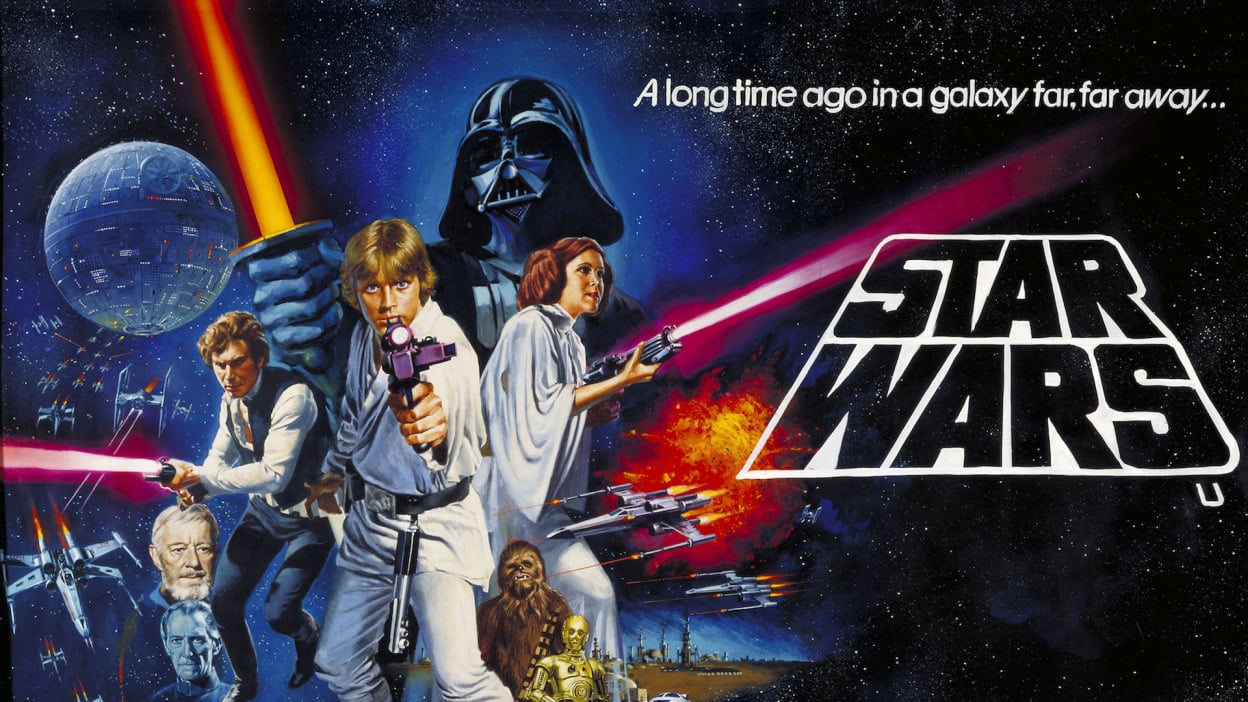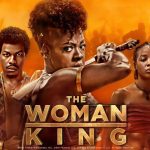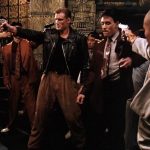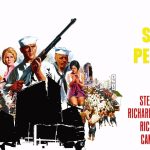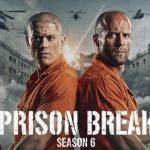🎬 Star Wars (1977): A Galactic Epic That Changed Cinema Forever 🌌

🎬 Star Wars (1977): A Galactic Epic That Changed Cinema Forever 🌌
Overview: Released in 1977, Star Wars—later retitled Star Wars: Episode IV – A New Hope—is the groundbreaking space opera created by George Lucas that not only redefined the science fiction genre but also revolutionized modern cinema. With its innovative special effects, epic storytelling, and unforgettable characters, Star Wars became a cultural phenomenon and laid the foundation for one of the most successful and beloved franchises in film history. Its impact is still felt today, influencing filmmaking, storytelling, and pop culture.
Plot Summary: Set in a galaxy “far, far away,” Star Wars follows the journey of Luke Skywalker (Mark Hamill), a young farm boy who dreams of adventure beyond the desert planet of Tatooine. When he discovers a message hidden in a droid named R2-D2, sent by the rebel leader Princess Leia Organa (Carrie Fisher), Luke becomes drawn into the conflict between the evil Galactic Empire and the rebellious Rebel Alliance. The message leads him to the wise and mysterious Jedi Knight Obi-Wan Kenobi (Alec Guinness), who reveals to Luke the ancient ways of the Force—a mystical energy field that binds the universe together.
Luke, along with the smuggler Han Solo (Harrison Ford), his co-pilot Chewbacca, and the two droids C-3PO and R2-D2, embark on a daring mission to rescue Princess Leia and destroy the Empire’s greatest weapon—the Death Star, a massive space station capable of annihilating entire planets. Along the way, Luke discovers his own potential, learns about his true heritage, and ultimately faces off against the sinister Darth Vader (David Prowse/James Earl Jones), the masked enforcer of the Empire who holds dark secrets about Luke’s past.
As the Rebel Alliance battles the Empire for control of the galaxy, Luke begins to understand the significance of his connection to the Force and the destiny that awaits him. In a climactic space battle, Luke makes a desperate attempt to destroy the Death Star, guided by the Force and aided by his friends, culminating in one of cinema’s most iconic moments.

Legacy and Impact: Star Wars broke new ground in visual effects, with Lucas and his team at Industrial Light & Magic pushing the limits of what was possible on screen. The film’s combination of practical effects, miniatures, and revolutionary visual techniques, such as motion control photography, set a new standard for the industry. The opening crawl and the lightsaber battles became instantly iconic, and the design of alien creatures, starships, and planets left an indelible mark on sci-fi cinema.
Musically, John Williams‘ score for Star Wars became one of the most recognizable soundtracks in history, with the main theme—played over the opening credits—becoming synonymous with the series and the franchise’s grand sense of adventure. The Force theme, Imperial March, and other motifs continue to be revered in film music.
The film also brought new archetypes to the screen, from the reluctant hero (Luke), the wise mentor (Obi-Wan), and the charming rogue (Han Solo), to the strong-willed princess (Leia) and the dark antagonist (Darth Vader). These characters resonated with audiences, sparking a cultural shift in how heroes were portrayed on screen.
Cultural Phenomenon: The film’s commercial success and enthusiastic fanbase sparked a massive cultural movement, influencing everything from toys, books, and television shows to fashion and video games. The Star Wars universe grew exponentially, with sequels, prequels, animated series, and expanded universe novels building out the lore.
By creating a world of unforgettable characters and complex, interwoven plotlines, Star Wars paved the way for the modern blockbuster, ushering in an era of sequels, franchise-building, and expanded universes that has defined Hollywood to this day.
The “Star Wars fandom” became one of the most passionate and dedicated communities in pop culture, and phrases like “May the Force be with you” and “I am your father” have become part of everyday conversation. The influence of Star Wars extends far beyond the screen—its themes of hope, redemption, and the eternal struggle between good and evil continue to resonate with audiences of all ages.
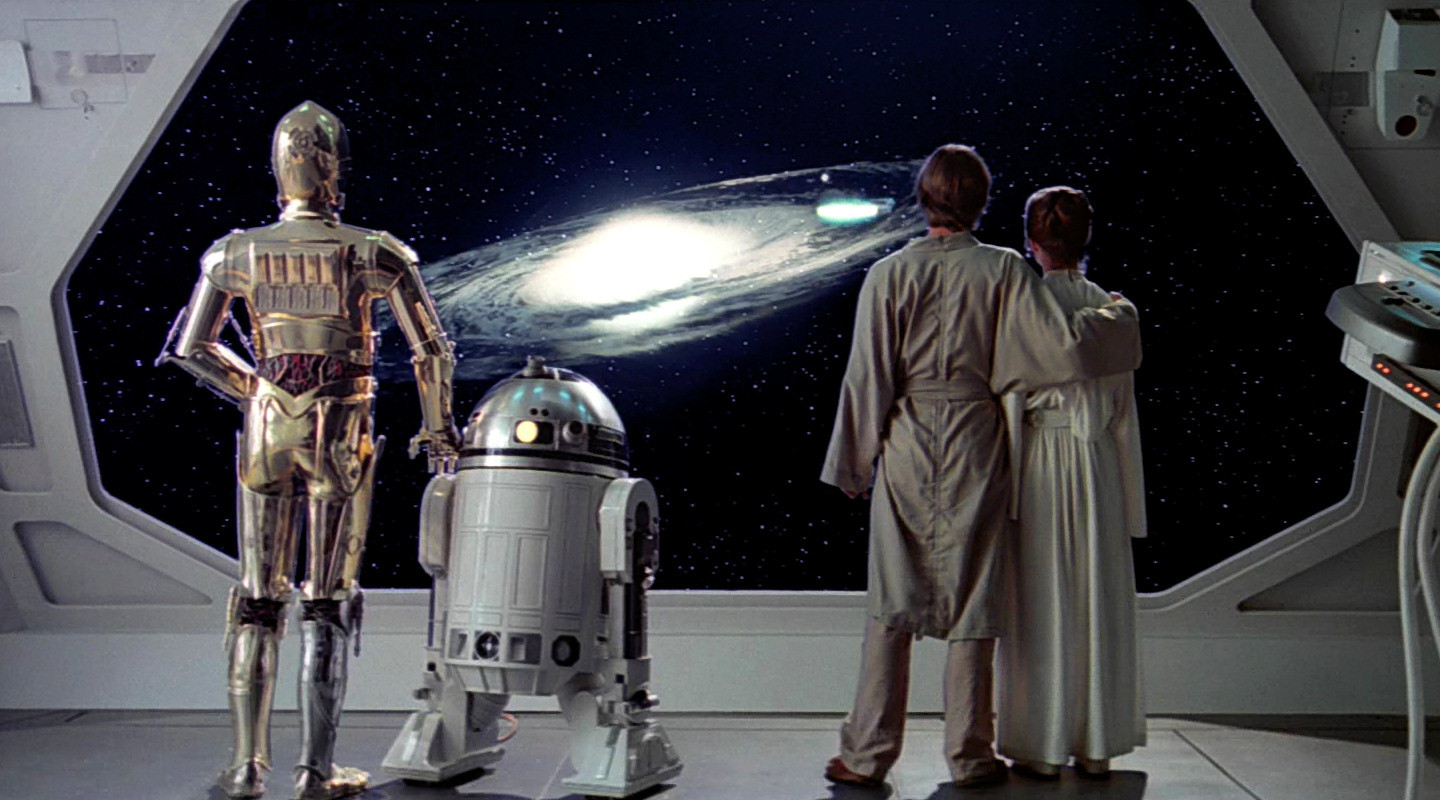
Themes:
- Good vs. Evil: Central to the Star Wars saga is the classic battle between the forces of good (the Rebel Alliance) and the forces of evil (the Galactic Empire), with characters struggling to navigate their own moral compasses.
- The Hero’s Journey: Luke Skywalker’s journey mirrors the classic hero’s arc—he goes from a farm boy dreaming of adventure to a hero who must confront his fears, discover his true potential, and face a dark destiny.
- The Force: A mystical concept that represents balance, harmony, and connection in the universe, the Force serves as the spiritual backbone of the Star Wars universe, presenting a complex interplay between destiny, choice, and personal responsibility.
- Rebellion and Resistance: At its heart, Star Wars is a story about standing up to tyranny and fighting for freedom, resonating with audiences as an allegory for resistance against oppressive forces throughout history.
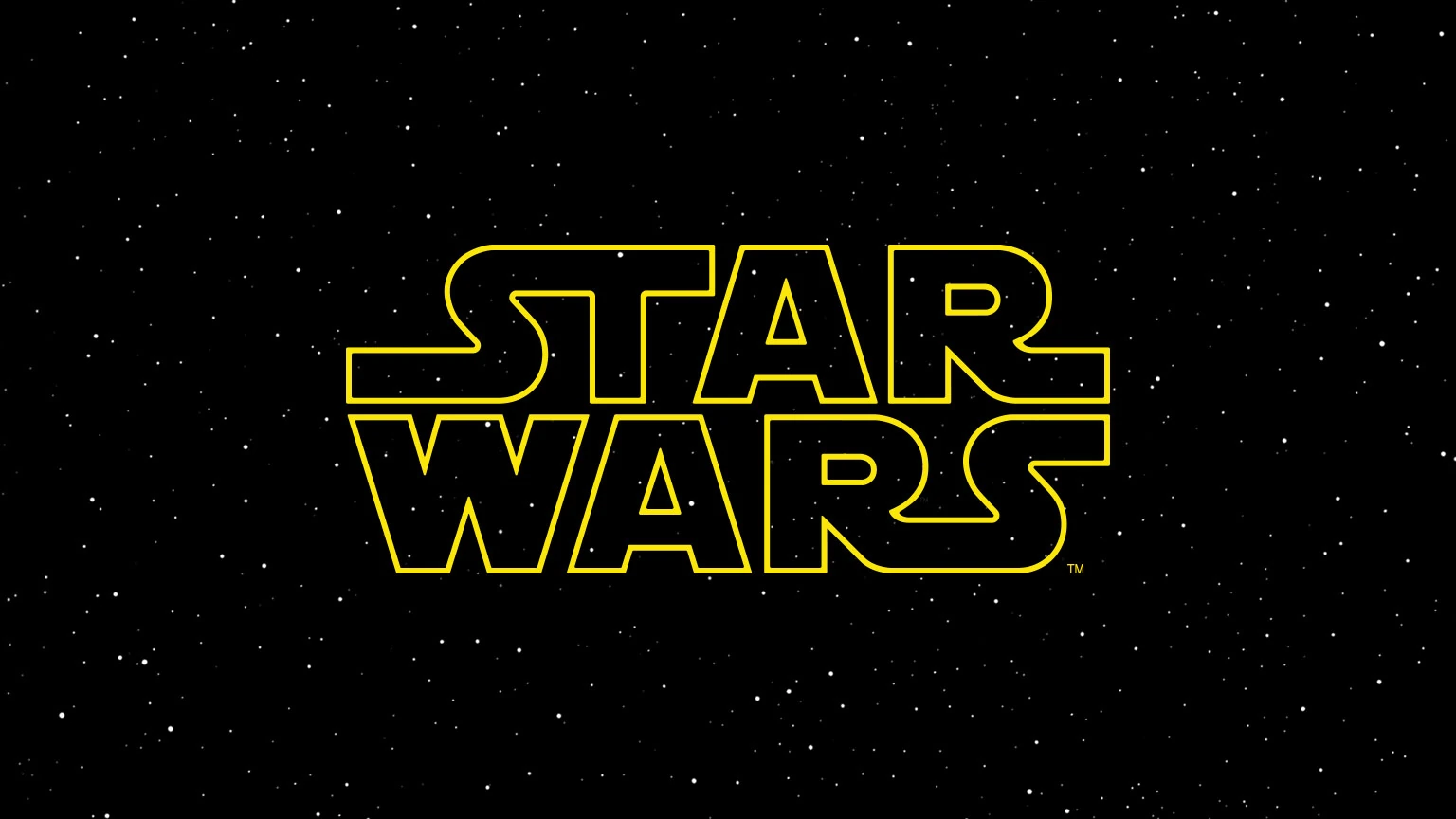
Conclusion: Star Wars (1977) is not just a film, but a cornerstone of modern cinema that shaped the way movies are made and consumed. It pioneered new techniques in special effects, sound design, and storytelling, and created a lasting cultural legacy that continues to influence and inspire generations of filmmakers, artists, and fans. Star Wars redefined the concept of the blockbuster and transformed the way we engage with stories on the big screen.